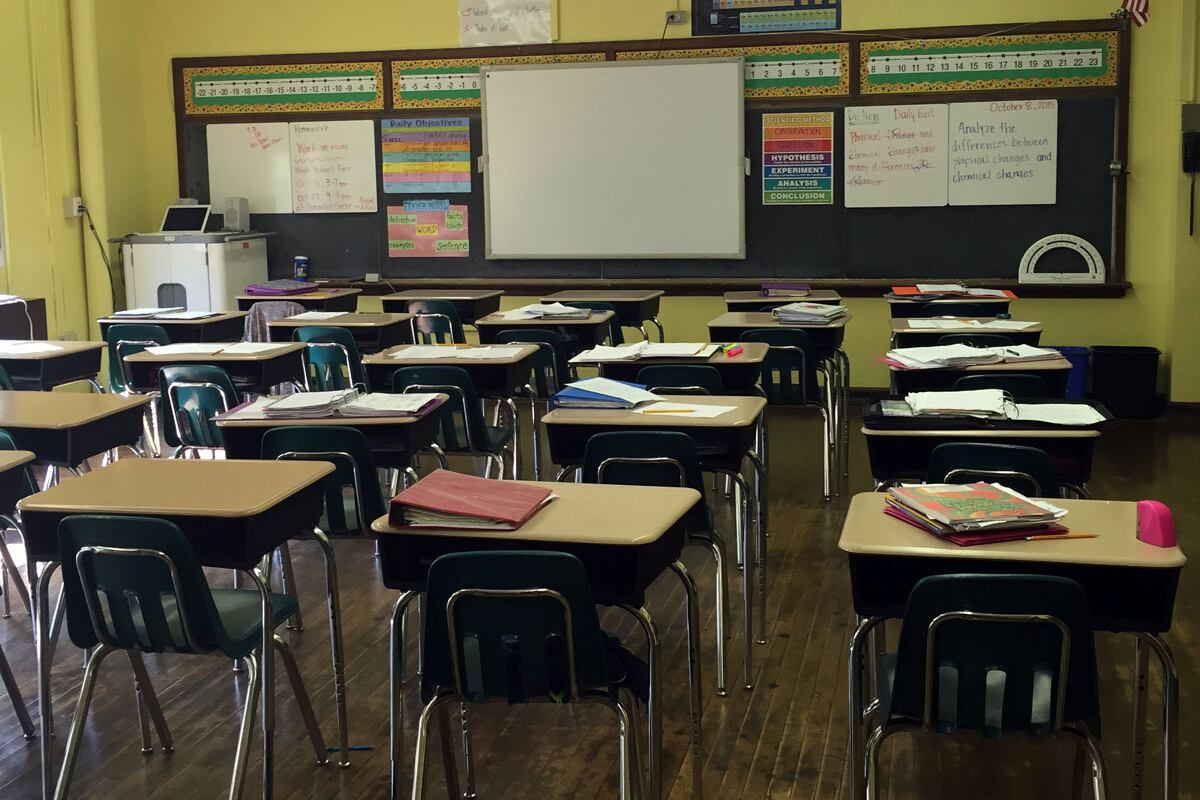The year 2020 may be over, but the challenges it brought to schools across the state because of the pandemic will persist — for months and possibly longer.
This new year brings plenty of questions about how Michigan’s public schools will continue to adapt to new ways of learning, as well as the pandemic’s long-term effects.
It’s been nearly 10 months since the first cases of COVID-19 hit, forcing schools to shift to online learning. The first half of this school year has been marked by debates about the safety of reopening schools, concerns about student achievement and student mental health, and the disappearance of thousands of students.
Here are six issues Chalkbeat Detroit will be watching during 2021:
A return to in-person learning?
A number of schools across the state halted face-to-face classes during the fall because growing numbers of COVID-19 cases were raising safety concerns. Many districts planned to reopen schools for in-person learning in January. But will that happen? And for how long? Much depends on what happens as a result of holiday gatherings. Schools in areas of the state that see spikes likely will have a difficult time transitioning from virtual instruction. And then there’s the question of what effects frequent transitions will have on students and teachers.
The Detroit Public Schools Community District, which halted its in-person classes in mid-November with plans to resume Jan. 11, told Chalkbeat Monday positive COVID-19 cases are still too high and they are now looking at a February return.
The vaccine effect
As Michigan continues to roll out COVID-19 vaccines, some are optimistic life will begin to return to normal. That’s especially the case given that teachers and other school employees will be among the first to receive the vaccine, after frontline essential workers such as hospital and emergency services staff.
But there are a lot of questions, such as whether large numbers of school staff will get vaccinated and whether they’ll feel safe returning to school after being vaccinated.
Some educators have argued that it won’t be safe to return to school until vaccines are widely given to students and staff. There is not yet a COVID-19 vaccine available for children under the age of 16. Also, some residents do not plan to get the vaccine. In Detroit, more than 60% of those surveyed recently said they were not likely to get it.
Improving online learning
We keep hearing that virtual learning is here to stay, even if it’s just for a small number of students. But will it improve? Students have complained about too much screen time, too many classes, too much isolation, and growing mental health challenges. In the Detroit district, a task force is being created to suggest changes.
Meanwhile, there are serious questions about whether schools will do a better job of serving the needs of students with special education needs, some of whom aren’t receiving the services they need to succeed.
Will students return?
Public school enrollment was down by 53,000 students this fall, according to unaudited figures Chalkbeat obtained last month. That’s far above the student count declines Michigan has been experiencing for well over a decade, and it’s particularly concerning because included in that overall number are 13,000 students who are unaccounted for.
Some of those students may be learning at home. Others may have moved to private schools. But some of those students likely aren’t being educated at all, which could have academic implications if and when they return to class.
If the enrollment declines continue into the next school year, they could affect how much money schools receive from the state.
A focus on literacy
Last year, Michigan officials put off requiring some third graders who are far behind in reading to repeat the grade. It’s unclear whether the law will be delayed another year. If it moves forward, the number of students who could be held back would likely increase because of the pandemic.
Also unknown is the fate of bipartisan legislation that would help students with dyslexia. The proposals would ensure students who show signs of dyslexia be identified in the early grades, and give educators more training to identify and work with dyslexic students.
Testing and accountability
Michigan’s standardized testing usually begins in the spring. Last year, the U.S. Department of Education allowed states to skip federal requirements for annual testing. Michigan is among the states that have asked for a waiver for the current school year.
Even if the state exams are cancelled this year, schools still must abide by Michigan requirements that they test students in the fall and spring to monitor student progress.






